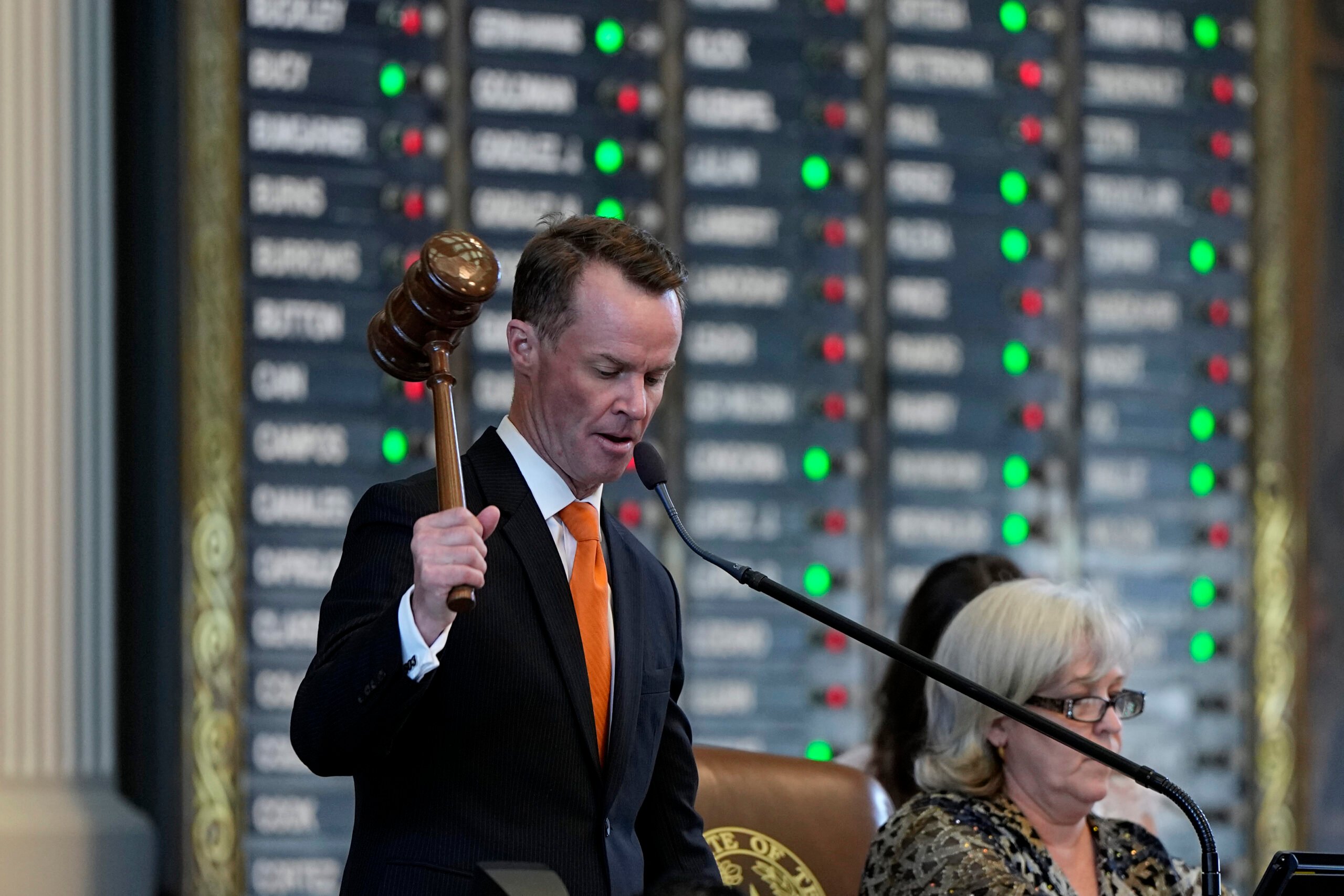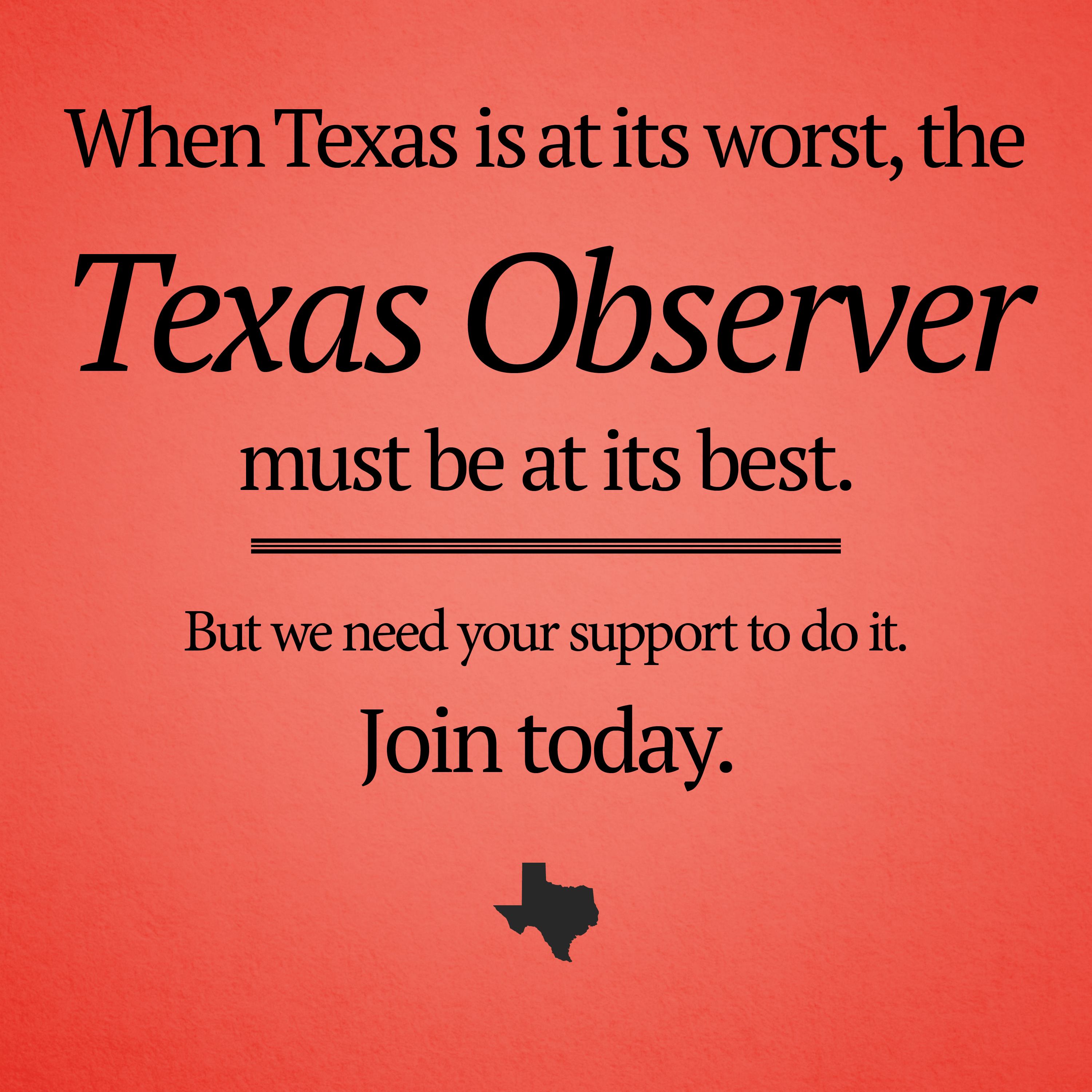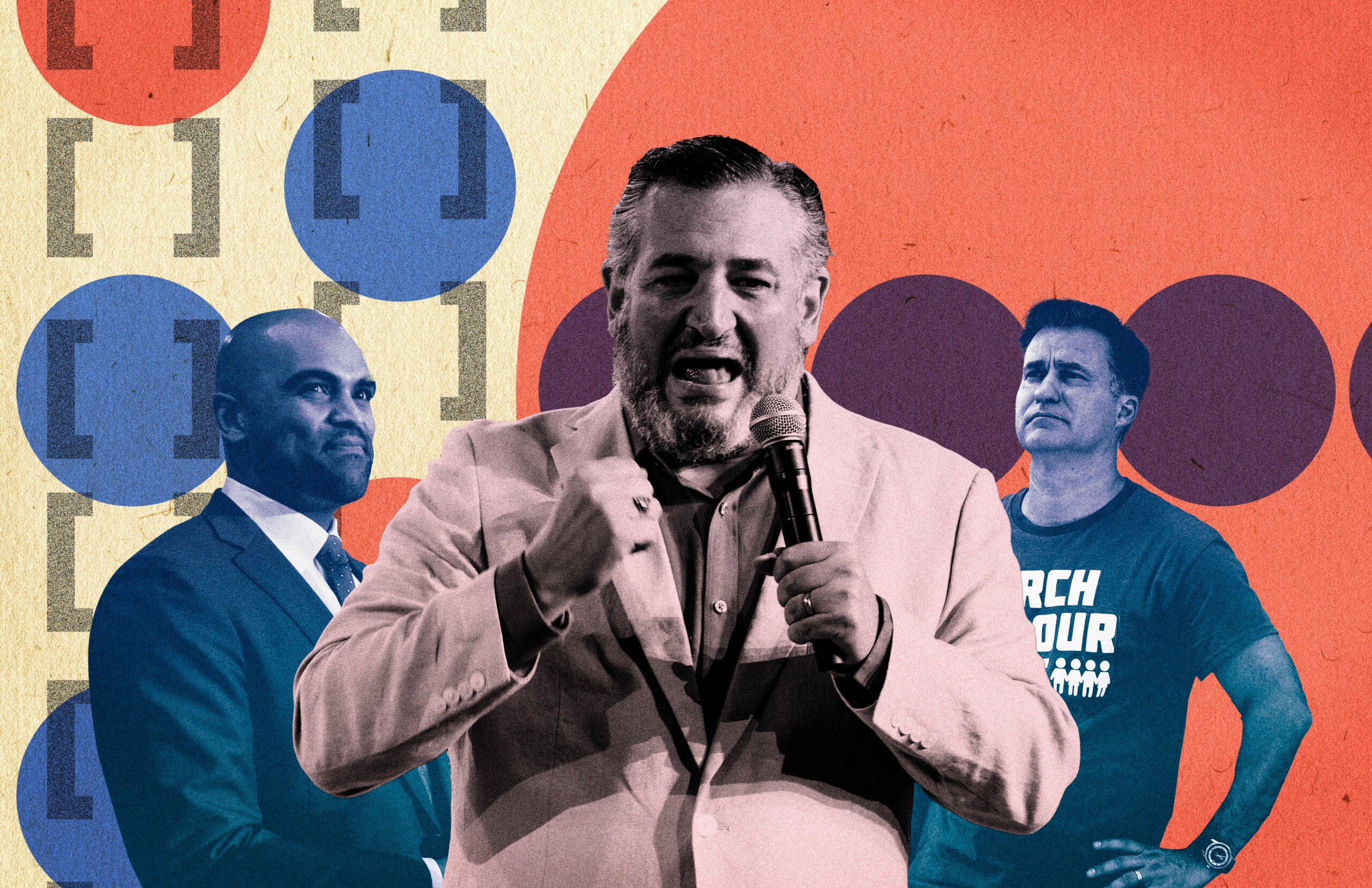
House Votes 84-63 to Strip Vouchers from Omnibus School Funding Bill
Rural Republicans team up with Dems to reject vouchers in intra party showdown on the House floor.

Above: Speaker of the House Dade Phelan oversees debate in the House Chamber at the Texas Capitol.
For all the clamor over what was being called a potentially “historic vote” for vouchers by the Texas House of Representatives, the bipartisan coalition of Democrats and rural Republicans maintained their long-standing opposition against school vouchers on the House floor today.
The writing was already on the wall for Governor Greg Abbott’s pet project when, early in the morning, Representative John Raney filed an amendment—signed by more than a dozen other rural Republicans—to strip school vouchers from the $7 billion omnibus school funding House Bill 1. The amendment was adopted by a vote of 84-63.
In another embarrassing blow to Abbott, his repeated threats to call a special session every single month until the March primaries have not changed the opposition to vouchers. During the regular session, the House passed, in a vote of 86-52, an amendment by Representative Abel Herrero to prohibit state money from going to private institutions. The four rural Republicans who previously voted for the Herrero amendment and did not vote for the Raney amendment included Representatives Trent Ashby, Brooks Landgraf, Angelia Orr, and David Spiller.
“It’s bad public policy.”
“I support everything in this bill with one exception—the creation of ESAs [education savings accounts] or vouchers,” Raney said on the House floor. “I believe in my heart that using taxpayer dollars to fund an entitlement program is not conservative, and it’s bad public policy.”
There has historically been a wider margin of votes against vouchers in the Texas House. According to legislative records, from 2007 to 2021, more than 100 House lawmakers voted against vouchers every time it came to a vote.
What’s changed? The deliberate engineering of the culture war panic to sow distrust in public schools for the purpose of privatizing and defunding the public education system. Christopher Rufo of the Manhattan Institute, a right wing think-tank which is propped up by Charles Koch has publicly stated his goal is to “bait the Left into opposing [curriculum] ‘transparency,'” in order to spread public distrust. He had also told the New York Times that he was “preparing a strategy of laying siege to the institutions” by promoting “school choice.”
Raney’s amendment to strip vouchers from HB 1 initiated an intra-party showdown, when some representatives launched into the typical fear mongering used among public school defunders like Rufo.
Representatives Brian Harrison and Jared Patterson started a tirade against child molestation, sexual assault, and liberal indoctrination happening in classrooms. Patterson invoked transphobic remarks about boys using girls’ bathrooms. He was answered by loud boos from the gallery.
Harrison called vouchers the “civil rights issue of our time,” ignoring its history rooted in racist attempts to maintain segregation after the Supreme court desegregated schools with Brown v Board of Education. Representative Emily Troxclair added that vouchers would lift the poor out of poverty and reduce the crime rate among the poor.
Repeatedly, these lawmakers baited their Republican colleagues, asking why they were against school choice.
“These ESAs will largely benefit those already in the private school system, families who can already afford the tuition.”
“There’s a difference between school choice and school access. The choice is already there. Whether you can access it or not, that’s a different story,” Representative Harold Dutton said.
Representative Glenn Rogers noted that a voucher program would not be about the parent’s choice, but about the private school’s choice to accept students.
“The bill acknowledges private schools can refuse to accept students for any reason, including for disabilities, both physical or intellectual,” Rogers said. “These ESAs will largely benefit those already in the private school system, families who can already afford the tuition.”
Other representatives cited inaccurate data in opposing the Raney amendment, such as Troxclair who proclaimed Florida, which has a voucher program, is ranked first in education in the nation. The state is ranked 14 in K-12 public education by the U.S. News and World Report and 1 in overall higher education. Along with Troxclair, other representatives cited its successes in other states, without mentioning that other states are either rolling back or attempting to roll back vouchers.
Earlier this month, Illinois became the first state to roll back its voucher program after its tax credit scholarship program created a $75 million hole in the state budget. Only 13 percent of private schools reported they serve any students with disabilities, while there have been other complaints that participating private schools would not admit English-language learners, undocumented students, and pregnant and parenting students.
Democratic Arizona Governor Katie Hobbs has said of her state’s universal education savings account program: “The school voucher program is unaccountable and unsustainable. It does not save taxpayers money, and it does not provide a better education for Arizona students.” The U.S. News and World Report currently ranks Arizona 48 in public K-12 education.
The Republicans who voted for Raney’s amendment argued that voting against vouchers is a conservative measure.
“Is this the conservative thing to do to create another entitlement program, in effect to create a third education system?”
“Is this the conservative thing to do to create another entitlement program, in effect to create a third education system?,” said Representative Drew Darby, who added that the $500 million proposed appropriation for the program would exponentially expand once created. “Once you have a program, they [the guardrails] will be removed, and the program will expand.”
The voucher provision of HB 1 would have provided for a universal education savings account program, costing the state’s general revenue fund at least $8.8 billion over the next four years, based on the Legislative Budget Board’s calculations of how many students would use the vouchers. This does not include the $10.8 billion dollars lost each year to Texas public school districts, if just five percent of the state’s public school students were to leave public schools to participate in the voucher program, a figure based on analysis conducted by public policy group Every Texan. When students leave a public school district, the basic allotment for students leaves with them. However, schools still have to pay for the fixed costs of facilities, furniture, and teachers, among other expenses.
“We still need to come back here and fully fund our schools.”
“We just can’t pay for the program,” Raney said.
After the House vote, HB 1 author Representative Brad Buckley told reporters he had no intention of having another committee hearing on the bill, effectively killing any chance of passing public school funding measures in the bill, even as the legislature sits on a budget surplus that could address the needs of districts facing a deficit this year.
“If vouchers or ESAs are such a great idea, ask yourself why they can’t stand by themselves. Why do they have to be attached to provisions that help teachers and help schools,” Representative Harold Dutton said.
Ultimately, Raney said a voucher program’s detriment to public school funding would be greater than the benefits the bill would provide.
“They [vouchers] don’t help the state and they certainly don’t help all of the 5.4 million students attending public schools. They help just a few. Maybe.”
House Democrats held a press conference after the House vote calling on the state legislature to fund public schools.
“Today we upheld our sacred duty to support and maintain a system of public and free schools in Texas. It gives me tremendous hope … that we will continue to do what’s right for our public school students who still rank on the bottom when it comes to per student funding. We still need to come back here and fully fund our schools,” Representative Gina Hinojosa said.



